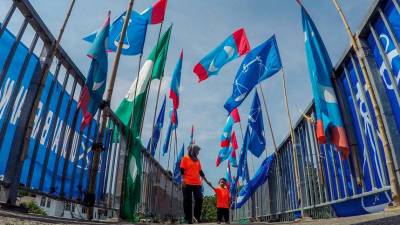PETALING JAYA: Far from being an election budget, Budget 2026 may be the least populist in recent memory – a calculated plan that analysts say reflects the government’s confidence in policy over politics.
Nusantara Academy for Strategic Research geostrategist and senior fellow Prof Dr Azmi Hassan said the Budget was carefully crafted to avoid appearing politically driven, although it was tabled ahead of the upcoming Sabah election.
“When Prime Minister Datuk Seri Anwar Ibrahim specifically mentioned that Sabah and Sarawak received more than the states in Peninsular Malaysia, it was not to please voters but to fulfil the Malaysia Agreement 1963 (MA63) obligations,” he told theSun.
Azmi said GE16 is still far off, and at least one or two more budgets would likely be tabled before then.
He added that while the Budget includes short-term goals, they are necessary due to the yearly fiscal cycle and the start of the 13th Malaysia Plan.
“The focus on immediate needs, especially among the B40 group, is critical. Initiatives such as the Sumbangan Asas Rahmah (Sara) cash aid and free education through PTPTN for low-income households show the government’s intent to support those who need it most.”
Azmi said subsidies play a significant role in Budget 2026 as the government has clearly explained how savings from subsidy rationalisation are being channelled back to the people, highlighting that the continuation of the RM100 Sara aid in February is among the most notable populist measures.
He said although some of the initiatives are continuations of previous policies, they demonstrate that the redistributed funds are being used to support essential groups rather than to curry political favour.
“The substantial allocation for Sabah and Sarawak each year reflects the government’s recognition that both states require additional funding for infrastructure and development programmes.”
Economist Dr Geoffrey Williams said the increased allocations for Sabah and Sarawak are part of a long-term MA63 settlement, acknowledged as fair by both sides and reflective of the Unity government’s continued reliance on East Malaysian support.
He said the Budget’s timing was set in advance and was not linked to a general election, but noted that the Sabah election might have been scheduled earlier to take advantage of the additional funds allocated to the state.
“There is nothing at all in Budget 2026 that could be described as attractive to voters.
“There are no meaningful handouts – for example STR and Sara payments will be the same as last year.
“With inflation, the purchasing power is less. Budget 2026 is focused on housekeeping and fiscal management rather than anything else.”
Williams also said there is no election narrative in Budget 2026 as the government did not introduce measures that would meaningfully raise incomes or reduce inequality.
He added that while subsidy savings are significant, it remains unclear how these funds are being utilised beyond helping the government avoid introducing new taxes.
“The cash transfers are unchanged, and the free education initiative covers only about 5,800 students out of 1.5 million. There are no key giveaways that would influence voters.”
Under Budget 2026, Sabah and Sarawak will receive the highest federal development allocations, with Sabah’s rising to RM6.9 billion from RM4.4 billion in 2022 and Sarawak’s increasing to RM6 billion from RM2.9 billion.
